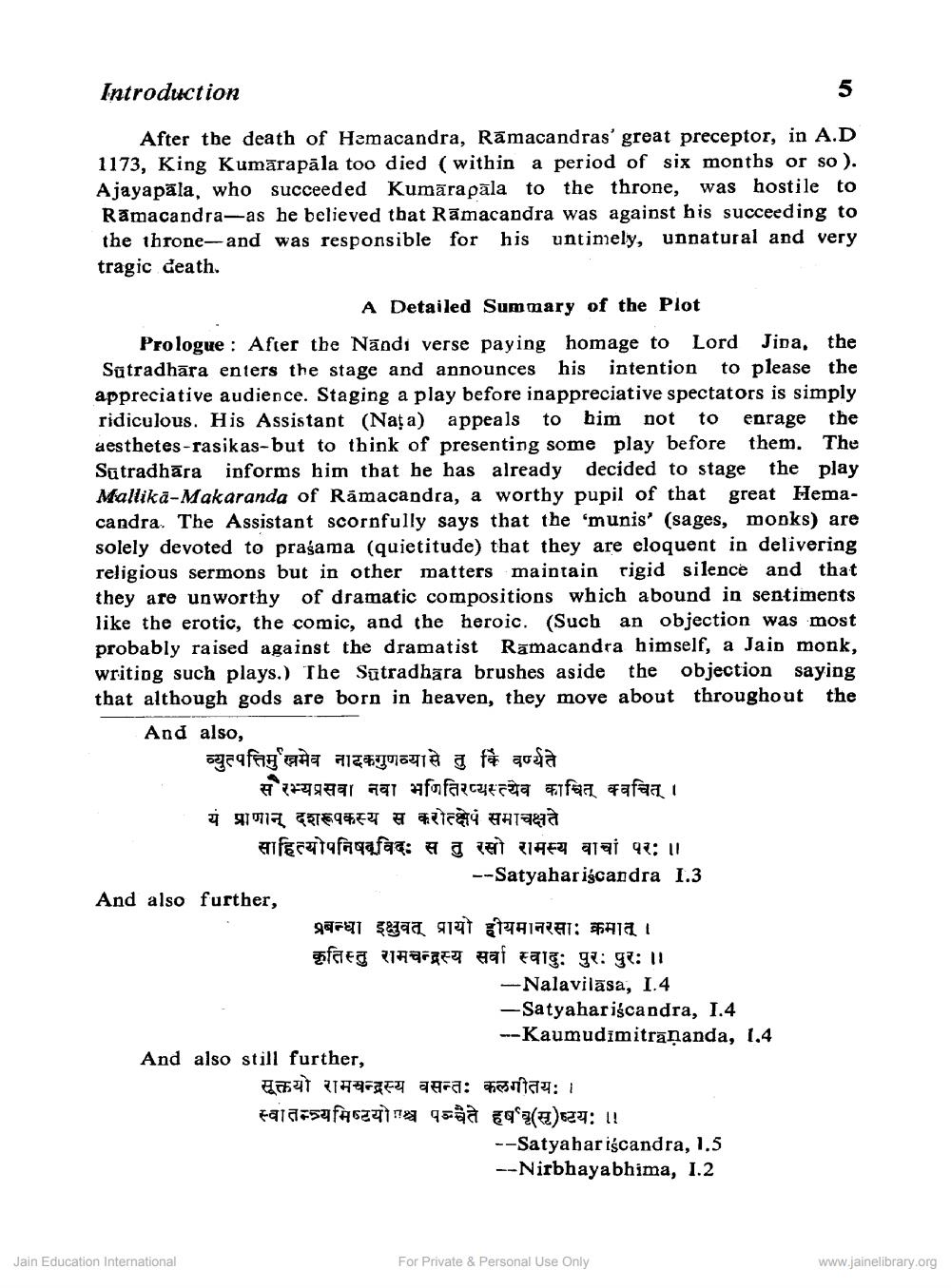________________
Introduction
5
After the death of Hemacandra, Ramacandras' great preceptor, in A.D 1173, King Kumarapala too died (within a period of six months or so). Ajayapala, who succeeded Kumarapala to the throne, was hostile to Ramacandra-as he believed that Ramacandra was against his succeeding to the throne-and was responsible for his untimely, unnatural and very tragic death.
A Detailed Summary of the Plot
Prologue: After the Nandi verse paying homage to Lord Jina, the Sutradhara enters the stage and announces his intention to please the appreciative audience. Staging a play before inappreciative spectators is simply ridiculous. His Assistant (Nata) appeals to him not to enrage the aesthetes-rasikas-but to think of presenting some play before Sutradhara informs him that he has already decided to stage the play Mallika-Makaranda of Ramacandra, a worthy pupil of that great Hemacandra. The Assistant scornfully says that the 'munis" (sages, monks) are solely devoted to prajama (quietitude) that they are eloquent in delivering religious sermons but in other matters maintain rigid silence and that they are unworthy of dramatic compositions which abound in sentiments like the erotic, the comic, and the heroic. (Such an objection was most probably raised against the dramatist Ramacandra himself, a Jain monk, writing such plays.) The Sutradhara brushes aside the objection saying that although gods are born in heaven, they move about throughout the And also,
व्युत्पत्तिमुखमेव नादकगुणव्यासे तु कि वर्ण्यते
सौरभ्यप्रसवा नवा भणितिरप्यस्त्येव काश्चित् क्वचित् । यं प्राणान् दशरूपकस्य स करोत्क्षेपं समाचक्षते
साहित्योपनिषयविदः स तु रसो रामस्य वाचां परः ॥ --Satyahariscandra 1.3
And also further,
Jain Education International
प्रबन्धा इक्षुवत् प्रायो हीयमानरसाः क्रमात् । कृतिस्तु रामचन्द्रस्य सर्वा स्वादुः पुरः पुरः || -Nalavilasa, 1.4 -Satyahariścandra, 1.4 --Kaumudimitraṇanda, 1.4
And also still further,
सूक्तयो रामचन्द्रस्य वसन्तः कलगीतयः । स्वातन्त्र्यमिष्टयो पचेते हर्ष ( स ) ष्टय: 11
--Satyahari candra, 1,5 --Nirbhayabhima, 1.2
For Private & Personal Use Only
www.jainelibrary.org




